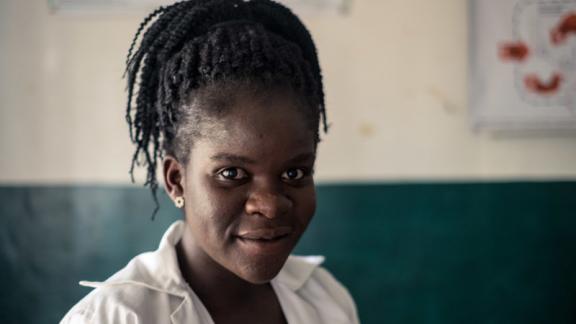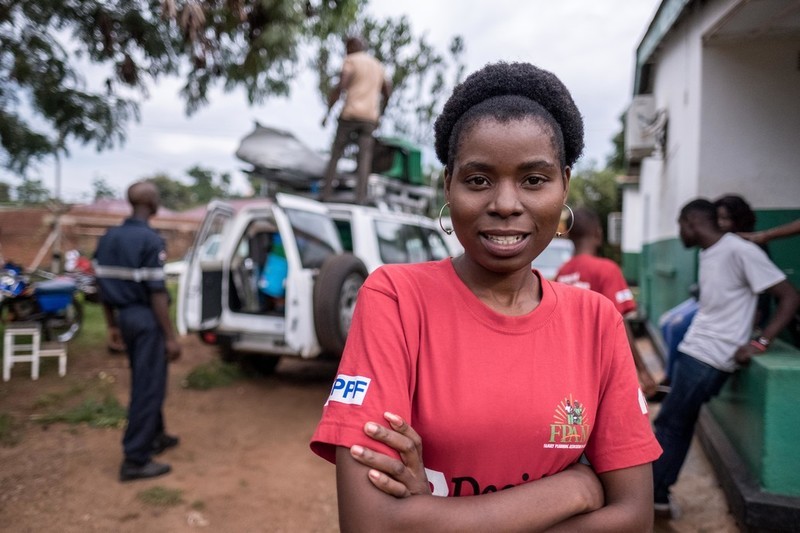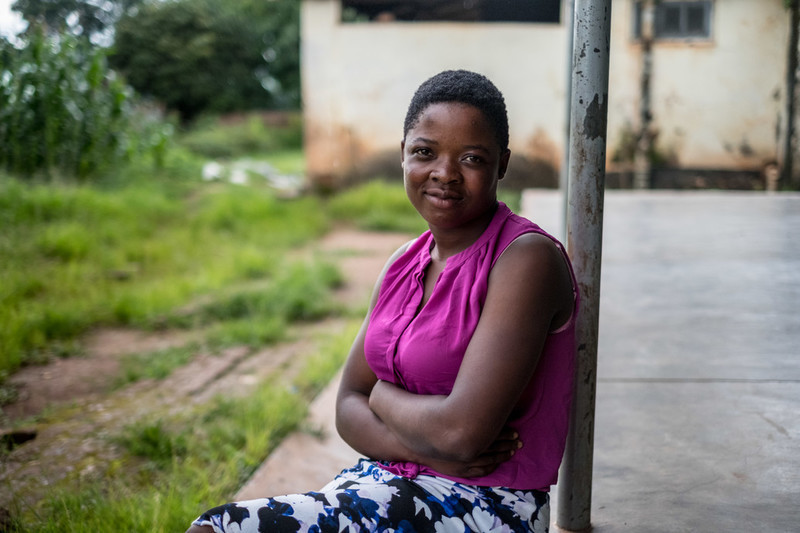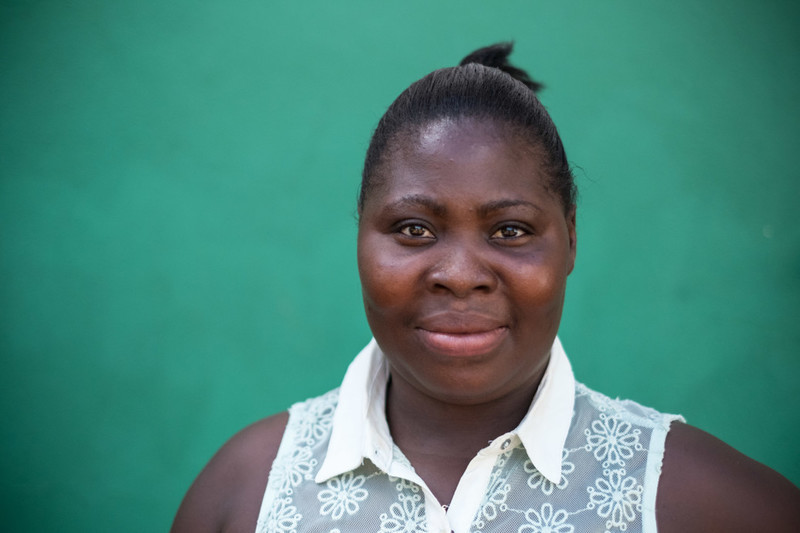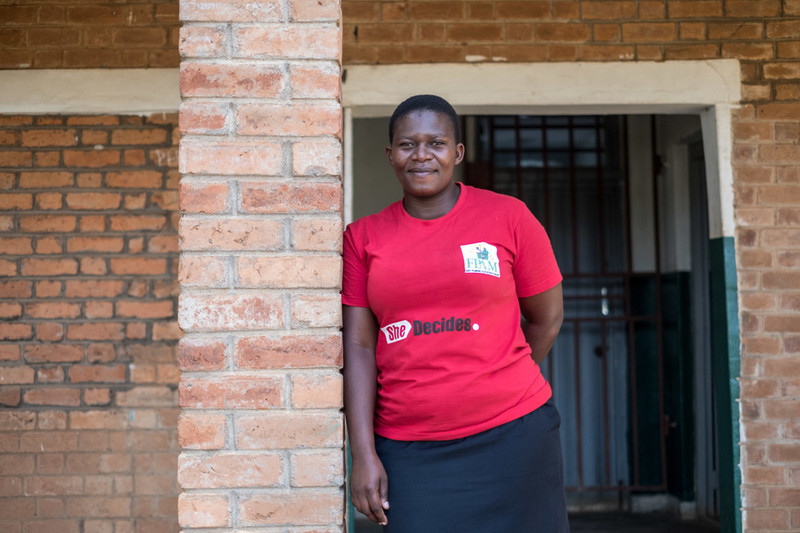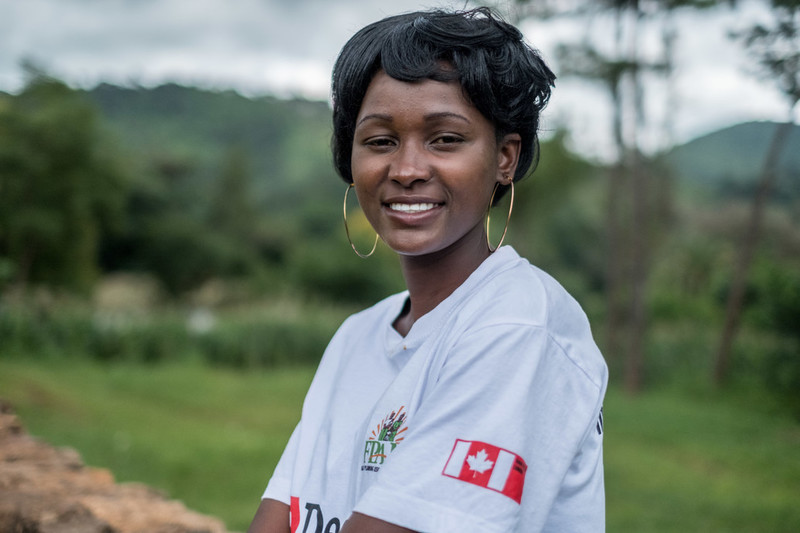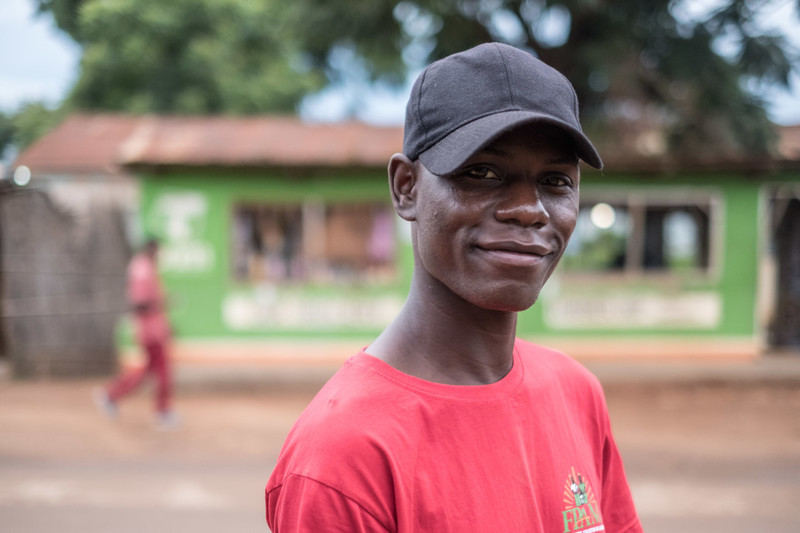Dressed in a sparkling white medical coat, Alinafe runs one of Family Planning Association of Malawi (FPAM) mobile clinics in the village of Chigude. Under the hot midday sun, she patiently answering the questions of staff, volunteers and clients - all while heavily pregnant herself.
Delivering care to remote communities
“Most NGOs don’t come here because it’s so hard to reach,” she says, as women queue up in neat lines in front of two khaki tents to receive anything from a cervical cancer screening to abortion counselling. Without the mobile clinic, local women risk life-threatening health issues as a result of unsafe abortion or illnesses linked to undiagnosed HIV status. According to the Guttmacher Institute, complications from abortion are the cause of 6–18% of maternal deaths in Malawi.
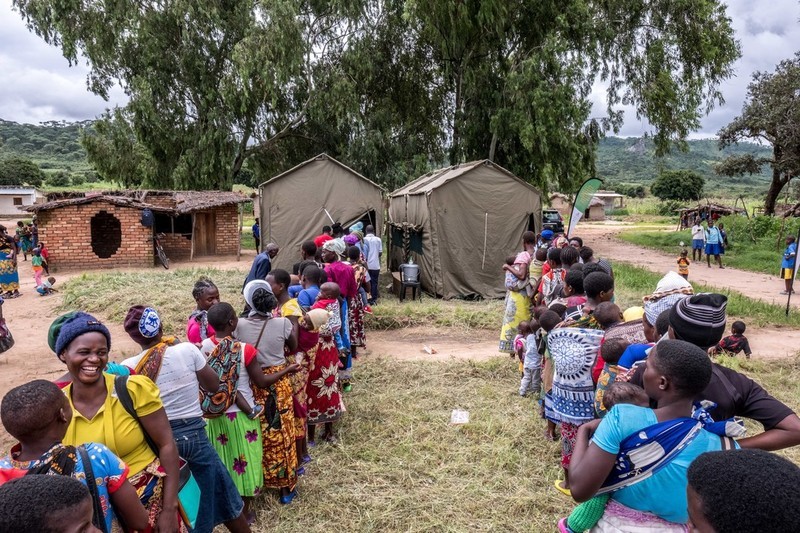
District Manager Alinafe joined the Family Planning Association of Malawi in 2016, when she was just 20 years old, after going to nursing school and getting her degree in public health. She was one of the team involved in the Linkages project, which provided free family planning care to sex workers in Mzuzu until it was discontinued following the 2017 Global Gag Rule.
Seeing the impact of lost funding on care
“This change has reduced our reach,” Alinafe says, explaining that before the Gag Rule they were reaching sex workers in all four traditional authorities in Mzimba North - now they mostly work in just one. She says this means they are “denying people services which are very important” and without reaching people with sexual and reproductive healthcare, increasing the risk of STIs.
The reduction in healthcare has also led to a breakdown in the trust FPAM had worked to build in communities, gaining support from those in respected positions such as chiefs.
“Important people in the communities have been complaining to us, saying why did you do this? You were here, these things were happening and our people were benefiting a lot but now nothing is good at all,” explains Alinafe.
Still, she is determined to serve her community against the odds - running the outreach clinic funded by Global Affairs Canada five times a week, in four traditional authorities, as well as the FPAM Youth Life Centre in Mzuzu.
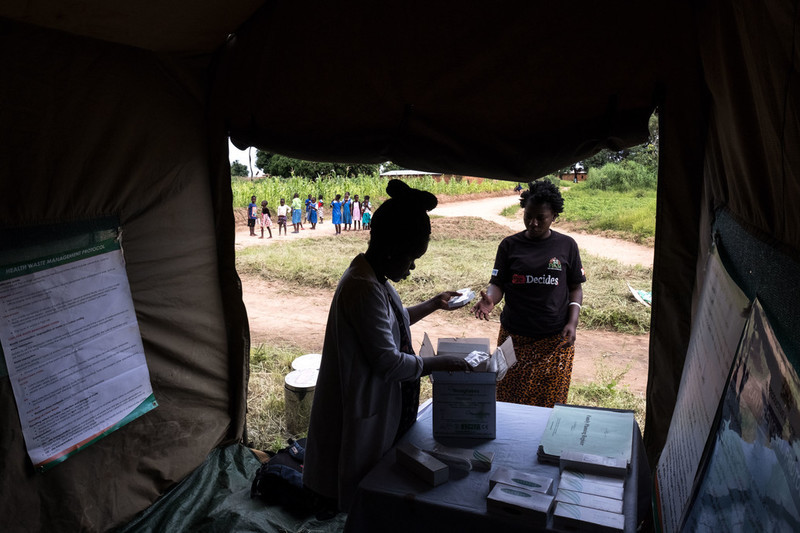
“On a serious note, unsafe abortions are happening in this area at a very high rate,” says Alinafe at the FPAM clinic in Chigude. “Talking about abortions is a very important thing. Whether we like it or not, on-the-ground these things are really happening, so we can’t ignore them.”
when
country
Malawi
Subject
Contraception
Related Member Association
Family Planning Association of Malawi







